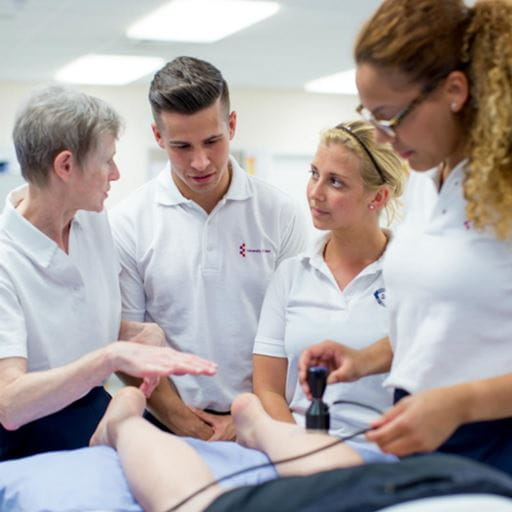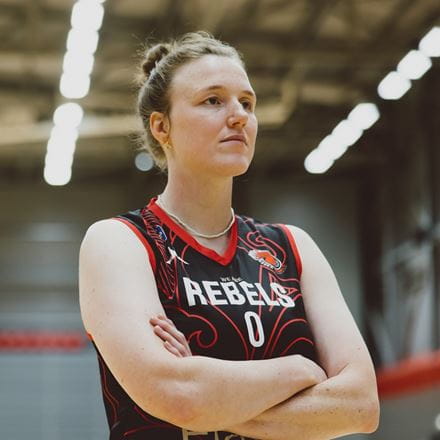Masters study

Do you want to unlock your potential for excellence? Stand out from the crowd with our taught Masters degrees
At the University of Essex, we offer cutting-edge Masters programmes that prepare you for specialised careers in Sport and Exercise Science, Sport and Exercise Psychology, and Strength and Conditioning.
At the University of Essex, we offer cutting-edge Masters programmes that prepare you for specialised careers in Sport and Exercise Science, Sport and Exercise Psychology, and Strength and Conditioning.
By enrolling on one of our Masters degrees, you will benefit from the unique expertise of our internationally recognised practitioner-researchers. You will learn from academics who are actively engaged in world-leading research and have extensive experience in their respective fields as physiologists, strength and conditioning coaches, performance analysts and consultants.
In an evolving and hyper-competitive job market, our Masters degrees will help you to develop a robust practical and conceptual skillset that is proven to be necessary for flourishing in advanced roles within the sport industry. Possible career paths that will become available include:
- Sport scientist
- Sport psychologist
- Strength and conditioning coach
- Physical education teacher
- Sport coordinator
- Sport development officer
- Small class groups enable our staff to provide tailored support, offering individual mentoring throughout your studies
- Flexible and specialised Continuing Professional Development pathways available in Musculoskeletal assessment, practice and sonography
- Access to the Human Performance Unit (HPU) with the centre for Sports Science Support and Physiological Testing at the University of Essex
What can you study?
What can we offer you?
Part-time options
Many of our PGT candidates are undertaking further study in order to develop their career. A promotion to a particular role may require the specialist knowledge that a Masters degree gives you, or you may want to work towards a clinical role that needs an additional period of study.
However, a full-time degree is a significant time investment, and it can be hard to balance it around work and life commitments.
As a result we offer many of our postgraduate degrees with a part-time option. This extends your period of study to two years, so you don’t need to commit to studying full time. You will take half your normal modules in your first year, and carry out the other half as well as writing your research project in your second year. You will still be taught by the same expert staff, and have access to the same facilities as full time students.
Range of qualifications
Our taught Postgraduate qualifications range from Postgraduate Certificate through to a Master of Science.
These qualifications involve different time commitments. If you want to improve your skills and evidence further learning, without undertaking a Masters degree, then a Postgraduate Certificate or Postgraduate Diploma can be an excellent way to gain a qualification in a specialist area. They can also help you progress towards a Masters or a research degree, by helping you become familiar with further study and research.
Some of our Masters degrees are accredited by relevant professional bodies. Accreditation is a sign that our courses have been tested against a robust set of external criteria, and undertaking an accredited degree can help towards recognition as a chartered professional in a relevant field.
Specialist modules
Our Postgraduate modules focus on some of the key areas of health and fitness.
Modules include the Biomechanics of Locomotion, Physical Activity and Wellbeing, Performance Nutrition, and Disability, Sport and Social Change.
Through these specialist modules you will gain knowledge and experience in areas which are increasingly important as people become more aware of the need for diversity, mental health, and non-traditional routes in to sport and exercise.
Change of direction
Depending on the MSc you’re thinking of studying, you may not need to have an undergraduate sports science degree. Some of our Postgraduate Taught degrees accept applications from candidates with undergraduate degrees in relevant areas such as human biology, psychology, or life sciences.
In particular our MSc Physiotherapy (pre-registration) is an intensive two year degree that allows you to graduate as a qualified physiotherapist. It is suitable for those who have already completed undergraduate study in a relevant area, and are looking for a career change without needing to undertake another three-year Bachelor’s degree.
Leading research
Research in our School is split in to three key areas; Health, Exercise and Active Lifestyle, Development of Young People Through Sport, and Sports Performance.
Our research feeds into our teaching, so you benefit from the latest insights in our fields of expertise. We carry out projects funded by a range of bodies and organisations, and engage with athletes and community groups to ensure our work has impact.
Many of our academics also carry out interdisciplinary research with colleagues in departments across the wider University, including the Department of Psychology, the School of Computer Science and Electronic Engineering, and the School of Health and Social Care.
Expert staff
Staff in our School are experts in their areas of research, and have backgrounds and professional experience as rehabilitation practitioners or sports science consultants.
Our academics are members of one or more research groups in our School, where they collaborate on a range of projects and supervise postgraduate research students. Throughout the year we invite external experts to deliver research seminars or specialist workshops, so you have access to ideas and research from other institutions.
Our staff have extensive professional experience. They have attended the Olympic Games, World Championships, European Championships and the Commonwealth Games in sports science and sports medicine support capacities, and other team members currently work at national and international level in various sports. Our physiotherapy leaders have worked for a range of health providers including the NHS and private clinics, giving them broad experience with a range of diverse clients.
Vibrant research community
We have an international reputation for outstanding quality research and postgraduate training. By studying with us you will join a thriving community of taught Masters and postgraduate research students that provides an active and stimulating environment in which to learn and carry out research.
You will be taught and supervised by our world-class team of academic staff who have a wide variety of research interests, and who have been funded by a range of prestigious bodies such as Rugby Football Union, Economic and Social Research Council (ESRC), World Anti-Doping Agency, and International Olympic Committee. You will also be able to attend SRES research seminars where guest speakers from across the industry are invited to present and discuss their work.
Continuing Professional Development pathways
With the ever-evolving nature of health-based industries, we know how important it is to keep your professional practice up to date. We’ve created a system of flexible Continuing Professional Development opportunities to ensure musculoskeletal practitioners can acquire additional skills, qualifications and training in a structure and time-frame that suits them.
We offer modules that can be studied alone or as part of a pathway, which are available at Postgraduate Certificate, Postgraduate Diploma or as an MSc degree. Some teaching is carried out online, so you can fit studying around employment.
Professional backgrounds of students include but are not restricted to: physiotherapist, sonographer, rheumatologist, general practitioner, sports physician, and nurse specialised in rheumatology.
Enhanced skills
Compared to your undergraduate degree, a Masters degree has a greater emphasis on self-directed work and learning. With the guidance of our expert staff, you will learn how to carry out in-depth analysis and critical evaluations of the current research literature, and undertake your own independent research including experiment design and data management.
You will gain a greater theoretical understanding of different aspects of sport science and rehabilitation, as well as enhanced practical and clinical skills through sessions in our labs, and small group workshops.
You will complete your degree with a set of advanced skills that will set you up for specialist roles in your field of expertise, or help you take the next steps towards further professional qualifications.
Master of Science by Dissertation (MSD)
If you are thinking of taking a PhD in the future, then an MSc by Dissertation (MSD) may be for you.
This research degree is one year full time (two years part-time) and involves you carrying out independent research in an area chosen with your supervisor. You will write up your results in a thesis of approximately 30,000 words, and will discuss it in an oral exam known as a viva.
The MSD can be taken as a stand-alone degree to show that you have developed further research skills beyond your undergraduate degree. It can also be used as a stepping stone in to a PhD. If your research is progressing well and there are opportunities to develop it further then you may be able to “upgrade” to a PhD with Essex, or you can use it as evidence of research experience when applying for further study elsewhere.









